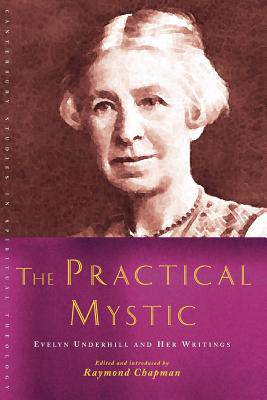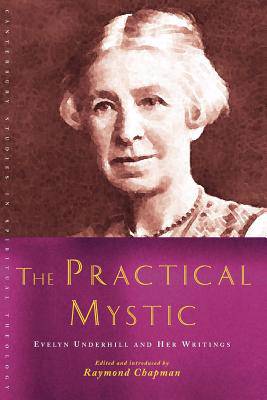
- Retrait gratuit dans votre magasin Club
- 7.000.000 titres dans notre catalogue
- Payer en toute sécurité
- Toujours un magasin près de chez vous
- Retrait gratuit dans votre magasin Club
- 7.000.0000 titres dans notre catalogue
- Payer en toute sécurité
- Toujours un magasin près de chez vous
Description
Evelyn Underhill (1875-1941) had wide influence through her work on Christian mysticism, especially by her continual insistence that the mystical experience is not esoteric, but open to any sincere believer. Resisting the growth of popular unfocussed mysticism in the early part of the twentieth century, she used her great historical scholarship to expound the work of past thinkers and show its relevance to the contemporary world. She was a prolific writer on many other subjects, including liturgy, prayer and individual spiritual formation, and was also a novelist and a poet. She was much in demand as a retreat conductor and spiritual director, and she lectured at universities and church congresses. She contributed to various journals, and in her later years gave broadcast talks. She was acknowledged as one of the leading Anglo-Catholic thinkers of her time, and her reputation has grown in recent years; there is a flourishing Evelyn Underhill Society. Despite her formidable learning and intellect, she had sympathy and practical advice for individuals, and had a delightful sense of humour which often enlivened her profound advice with homely analogies. In both her published works and her private letters, her teaching was always directed against personal anxiety and introspection, and towards concentration on a closer union with God. She maintained and promulgated calm and commonsense through a lifetime which saw much social and religious unrest. In the Second World War she strongly advocated Christian pacifism. In this volume, extracts from some of her many writings are set out by their main themes, from general mysticism to personal letters, with extracts also from her fiction and poetry. There is a biographical and critical introduction, relating and giving perspective to her life and work. Raymond Chapman is Emeritus Professor of English in the University of London, and an Anglican priest He is a Vice-President of the Prayer Book Society and of the Anglican Association. He has edited previous volumes in the Canterbury Studies in Spiritual Theology and published a number of other critical and devotional works including Leading Intercessions, A Pastoral Prayer Book, and Stations of the Nativity, Cross and Resurrection
Spécifications
Parties prenantes
- Auteur(s) :
- Editeur:
Contenu
- Nombre de pages :
- 242
- Langue:
- Anglais
- Collection :
Caractéristiques
- EAN:
- 9781848251281
- Date de parution :
- 01-02-12
- Format:
- Livre broché
- Format numérique:
- Trade paperback (VS)
- Dimensions :
- 156 mm x 234 mm
- Poids :
- 344 g

Les avis
Nous publions uniquement les avis qui respectent les conditions requises. Consultez nos conditions pour les avis.






